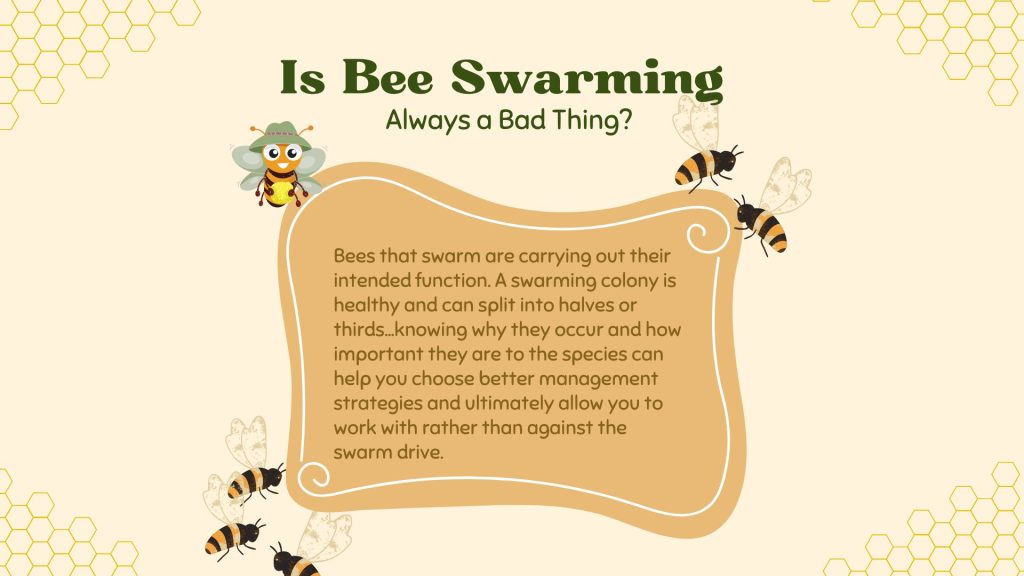What occurs to a living thing that is incapable of reproducing? Let’s consider that. How about the honey bees? Colonies would circle the drain into oblivion if they ceased branching out and swarming. However, beekeepers frequently lament swarming. They groan, “Why did my bees swarm? “What did I do wrong? “How do I get them to stop?” However, all beekeepers should know that swarming is a form of colony-wide reproduction. It is beneficial, organic, and necessary. It is what experts occasionally refer to as the biological urge. If the species is to survive, it must take place. It is absurd to think that only “unhappy” bees swarm. Don’t believe us? Here is what bee and wasp removal pros have to say about the issue.

Beekeepers frequently view queen mating as “reproduction,” and swarming is considered unproductive behavior. But in a superorganism, swarming and queen mating are both necessary steps in the two-step reproduction process. Remember that a mated queen cannot start a colony by herself. To care for her offspring and maintain her home in order, a queen needs a staff of servants and nurses. After all, the queen will produce thousands of children—massive hordes of hungry mouths—instead of just a few. She can’t do it all by herself to raise them. See the related article about the queen bee’s role here.
Unfortunately, beekeepers can focus far too much on aspects of the hive unrelated to the drive to swarm, which causes them to immediately Google “bee removal near me” if they feel the situation has truly gotten out of hand. For instance, you might hear that a colony swarmed due to the beekeeper’s insufficient space provision. Okay, possibly. More room may cause a settlement to delay swarming, yet space may be just one of several considerations in the colony’s decision-making process.
Ironically, we’ve all witnessed space-swarming colonies. If a colony is determined to swarm, it may backfill the brood nest and construct a honey barrier over it to prepare the queen and the colony for the impending divide. Increasing the amount of open nest space or honey storage may prevent swarming. Whatever you do to a hive’s interior, the swarming urge never goes away. We have limited influence over the genetic cues that cause it. Although we can see and understand colony behavior, we are powerless over the thoughts and feelings bees have.
Beekeepers would gain if they saw a swarm as a blessing rather than a problem. Bees that swarm are carrying out their intended function. A swarming colony is healthy and can split into halves or thirds. A swarming colony is similar to a wolf with puppies in that it produces offspring that disperse the parents’ genetic material into the environment and eventually grow into a new family that will hopefully swarm. Yes, swarms are a part of beekeeping, but knowing why they occur and how important they are to the species can help you choose better management strategies and ultimately allow you to work with rather than against the swarm drive.
The more you know! Stay tuned for helpful knowledge from our favorite bee and wasp removal team, The Beeman!